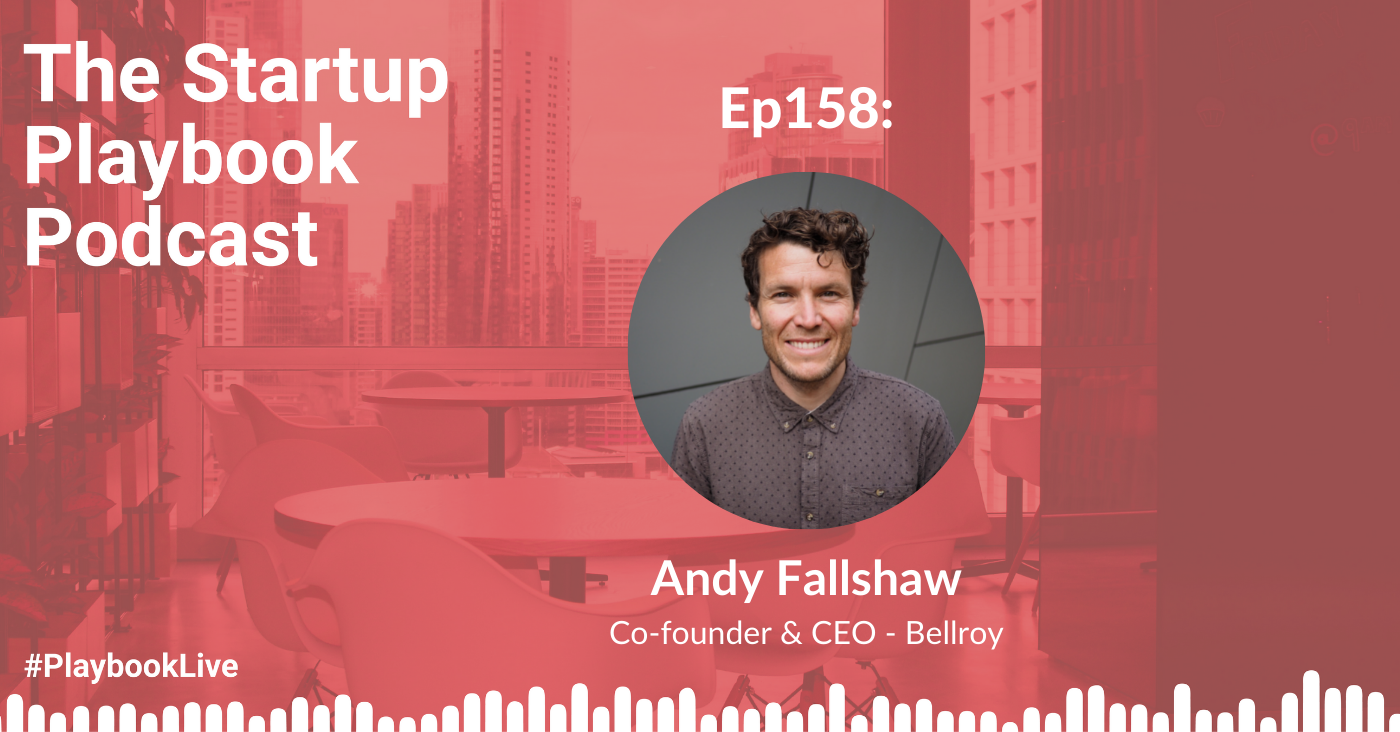
Ep158 – Andy Fallshaw (Co-founder & CEO – Bellroy) on taking the stairs vs the elevator
- October 21, 2021
- rohitbhargava
- Podcast
My guest for Ep158 of The Startup Playbook Podcast was the Co-founder & CEO of Bellroy, Andy Fallshaw.
Andy, his brother (Matt) and sister-in-law (Lina) decided to get into business together and instead of launching 1 business, they ended up launching 9 businesses over the span of 2-3 years.
One of those companies was Bellroy, which launched in 2010 with their first product, the slim sleeve wallet, which redesigned the wallet experience.
Fast forward to today and Bellroy is the world’s leader in the carry category, having expanded out into multiple product ranges such as iPhone cases, AirPods cases and travel bags.
Despite having built a large global brand and experienced incredible 600-700% YoY growth over the last 11 years, they only took on external capital for the first time, 2 years ago.
In this episode we discussed a wide range of topics including:
- Andy’s business philosophy on taking the stairs rather than the elevator
- How Bellroy applies agile development techniques when launching new products
- Why founders should think about building for resilience
- The deliberate and strategic evolution of Bellroy’s product range from a “hidden” wallet brand to products across a range of categories
- How to create the right environment and structure to get feedback
- & much more
Timestamps
- 2.20 – An introduction to Andy and Bellroy
- 8.07 – Growing up in a family of entrepreneurs and building business a for-purpose business
- 11.53 – Why Andy and his co-founders started nine businesses at once
- 16.17 – How Bellroy determined the product was a good market fit
- 20.22 – The process of developing a product and getting quality feedback
- 24.18 – Seeking good feedback and the type of people you should be getting it from
- 29.14 – Designing the perfect backpack and the keys to great product design
- 36.18 – Finding your Northstar
- 37.39 – How to decide on your next product line and why usually the natural progression is the best option
- 42.17 – Why having more control and keeping operations in-house could be the best path to success when building a purpose-driven business
- 45.50 – Deciding whether freelancers, an agency or in-house is the best fit for your team
- 50.32 – The decision to raise capital and the non-financial benefits
- 55.08 – Seeking feedback, finding mentors and being able to take constructive criticism
- 1.00.29 – Ensuring the business values stay at the forefront of operations when running a purpose-driven business
- 1.05.10 – How to get in contact with Andy
Links Mentioned
Andy’s Links
People Mentioned
- Lina Calabria
- Matthew Fallshaw
- Jo Fallshaw
- Frank Gaillard
- Professor Norman McNally
- Daniel Kahneman
- Jimmy Gleeson
- Dane O’Shanassy
- Yvon Chouinard
Companies Mentioned
- Ripcurl
- Fallshaw Wheels & Castors
- Radiopaedia
- B Corporation
- Patagonia
- The Glasgow School of Art
- Shopify
- Magento
Previous Episodes Mentioned
Special Thanks:
Special thanks to Lina Calabria and Dane O’Shanassy for their help with research for this interview!
Feedback/connect/say hello:
Rohit@startupplaybook.co
@RohitBhargava7 (Twitter)
/rohbhargava (LinkedIn)
@rohit_bhargava (Instagram)
My Youtube Channel
Credits:
Music: Joakim Karud – Dreams
Other channels:
Don’t have iTunes? The podcast is also available on Spotify, Soundcloud & Stitcher Audio Player.
Find all links to the podcast here.
Podcast: Play in new window | Download | Embed
Subscribe: RSS